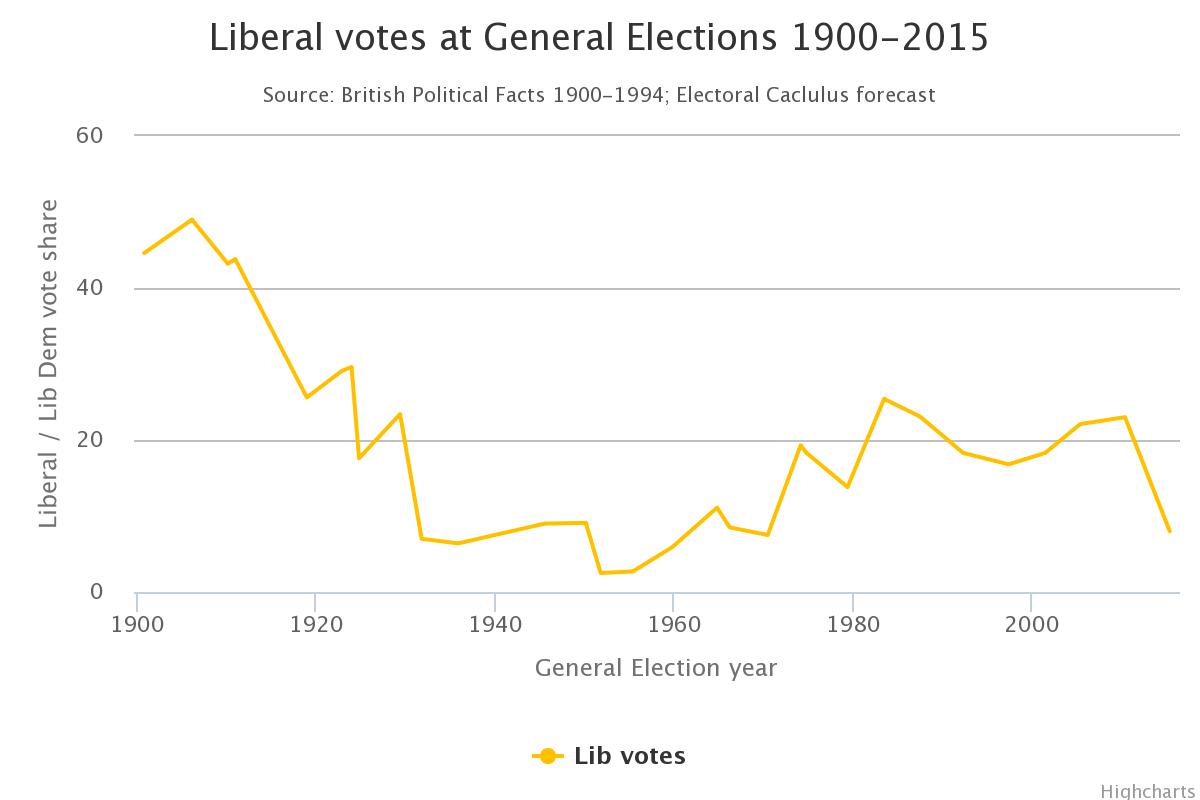
The Liberal Democrats won a share of power in 2010 for the first time since 1918, winning 57 seats with 24 per cent of the vote. That historic achievement has not found much favour with the voters. Support for the Lib Dems is down to a feeble eight per cent in the polls, its lowest since 1970. Two thirds of Lib Dem voters have deserted the party.
Lib Dems hope to be benefit from incumbency and a late swing to minimise their losses. But what does the evidence tell us?
It is hard to model such a steep decline. The simplistic Uniform National Swing model would reduce the Lib Dem vote in each seat by 16 per cent evenly across the country. But this is wrong because it would predict a negative Lib Dem vote in over 150 seats. Another simple approach would be to reduce the Lib Dem vote multiplicatively by two thirds in each seat. But this is also wrong because it would give the Lib Dems no seats at all.
Electoral Calculus has a model which avoids these problems. This model uses a mixture of the two approaches, involving the concept of "strong supporters" which also captures some of the effects of incumbency. On this model the Liberal Democrats are predicted to lose forty of their seats, leaving them with a rump of 17 seats. But the incumbency effect could be stronger than this.
Let's cross-check the model with the constituency-level polling conducted by Lord Ashcroft and others. These polls surveyed 26 Lib Dem seats and suggest that the Lib Dems will lose 19 of them. In close agreement, the Electoral Calculus model predicts 21 losses for the same seats, which suggests that the incumbency effect will not be extremely strong.
The Liberal Democrats have also traditionally benefitted from a swing as the election approaches. This has been attributed to increased public awareness and, in 2010, Nick Clegg's performance at the televised leaders' debates. This time around these effects are likely to be smaller. The Lib Dems have already been in the public eye for the last five years so they have not lost visibility. And Nick Clegg's net personal ratings of minus 50 per cent are a poor basis for a barnstorming turn-around.
Some notable Lib Dem MPs are vulnerable to these trends. Both Danny Alexander, the Treasury Chief Secretary, and former leader Charles Kennedy seem set to lose their Scottish seats to the SNP. In England, Energy Secretary Ed Davey and Justice Minister Simon Hughes are both fighting to keep their seats.
The Liberal Democrats made a courageous move from a protest party to a coalition partner, but the voters haven't liked it.